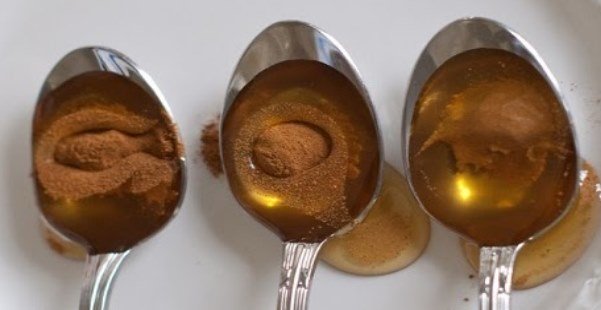Honey and cinnamon are two of Mother Nature’s most potent and adaptable miracle foods, and their combination is an excellent cure for a variety of health problems.
Here are a few advantages it has for your health:
Typical Colds
Strong antioxidant, antimicrobial, and antibacterial qualities in cinnamon and honey aid in the treatment of the flu and colds.
Coughs are reduced, the flu is treated, and the immune system is strengthened by honey. Make a cup of tea with honey and cinnamon and sip on it all day to ease the symptoms of your cold.
Obstructed arteries
A 2010 study in the Journal of the Diabetes Technology Society demonstrated that cinnamon oil reduces dangerous triglycerides in the blood by 30% and LDL, or bad cholesterol, by 27%, both of which are thought to be major contributors to cardiovascular disease.
Arthritis
The symptoms of arthritis can be treated, and chronic arthritis can be cured, by drinking one cup of hot water with two tablespoons of honey and one tiny teaspoon of cinnamon powder each day.
Researchers at Copenhagen University discovered that when doctors gave their patients a pre-breakfast remedy of one tablespoon honey and half a teaspoon ground cinnamon, 73 of the 200 patients experienced complete pain relief, and within a month, the majority of the patients who were unable to walk or move around began walking pain-free.
Allergic Remedy
Raw honey boosts the immune system while also alleviating allergy symptoms.
Additionally, dust mites are a major contributor to indoor allergies, but the products used to prevent them frequently contain high levels of hazardous chemicals. Dust mites are a major cause of asthma, dermatitis, rhinitis, and other conditions, but cinnamon is a potent weapon in the fight!
It was discovered that cinnamon bark oil and cinnamon leaf oil were 2.5 times as effective at killing dust mites as benzyl benzoate. Spray distilled water mixed with cinnamon leaf or bark oil on curtains, beds, and linens to kill dust mites.
Infections of the urinary tract
Cinnamon is the fourth most effective plant against urinary tract infections, according to a study that was published in the Iran Journal of Medical Sciences. There were 28 plant extracts examined.
Enhanced Energy
The powerful insulin-boosting property of cinnamon gives the body energy while controlling blood sugar. Honey is also a great source of natural sugars and contains traces of antioxidants, enzymes, minerals, vitamins, and amino acids, which help the body stay energized and fight weariness.
Digestion problems
In addition to treating ulcers, constipation, and nausea, honey and cinnamon also combat H. pylori and E. coli infections in the digestive tract.
A Natural Treatment for Acne
Due to their potent antibacterial and antimicrobial characteristics, honey and cinnamon have been used for generations to treat acne and other skin disorders.
Honey has been used as a cosmetic since ancient times, and cinnamon has been discovered to kill Staphylococcus epidermidis, the bacteria frequently responsible for acne. In addition, it treats psoriasis and dandruff, prevents wrinkles, and enhances the condition of the skin.
Apply the paste to the afflicted region to treat acne by combining 1 tablespoon of raw organic honey with 1 teaspoon of cinnamon. Leave it to work for 20 minutes, then rinse.
Loss of weight
By boosting the fat-burning process, speeding metabolism, and reducing food cravings, this extraordinary combination aids in weight loss.
Gingivitis
Your oral health can greatly benefit from using honey and cinnamon. According to research, patients with gingivitis who chew or suckle on a Manuka honey product have a 35% reduction in plaque and a 35% reduction in bleeding sites.
Remember that substituting honey for sugar in your diet is the best way to use it. Invest in unfiltered honey, but exercise caution since it still contains a lot of sugar.
Additionally, cinnamon contains coumarin, a substance that can be toxic in high doses. Compared to Ceylon cinnamon, the coumarin content in cassia cinnamon is substantially higher. Use Ceylon cinnamon for the best results; if you must use Cassia cinnamon, keep your daily intake to no more than 1/2 teaspoon (0.5-2 grams).
You can safely consume up to 1 teaspoon (or 5 grams) of Ceylon cinnamon per day!



